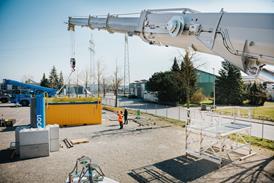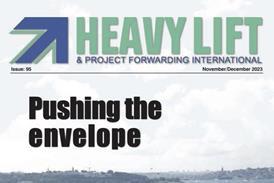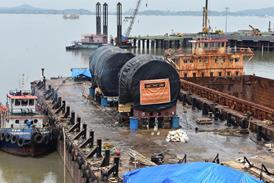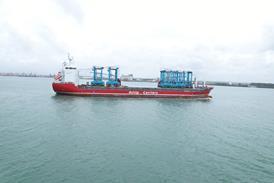September 28 - Overall confidence levels in the shipping industry rose in the three months ended August 2015, according to the latest Shipping Confidence Survey by international accountant and shipping adviser Moore Stephens.
Respondents were concerned predominantly about low freight rates and overtonnaging, with continuing doubts also expressed about private equity funding, said Moore Stephens.
In August 2015, the average confidence level conveyed by respondents in the markets in which they operate was 5.9 on a scale of 1 (low) to 10 (high). This compares to the 5.3 recorded in May 2015, which equalled the lowest figure recorded in the life of the survey that was launched in May 2008 with a confidence rating of 6.8.
All main categories of respondent recorded an increase in confidence this time, most notably charterers (up from 4.2 to 6.5) and owners (up from 5.1 to 5.8). The confidence of brokers, meanwhile, was up from 4.8 to 5.2, and that of managers from 6.1 to 6.4. Geographically, confidence was up in Asia from 4.9 to 5.8, in Europe from 5.3 to 5.9, and in North America from 6.0 to 6.3.
Competition, demand trends and finance costs featured as the top three factors cited by respondents as those likely to influence performance most significantly over the coming 12 months.
There was a fall in the number of respondents anticipating higher freight rates in the tanker and container ship sectors, but expectations of improved rates in the dry bulk trades were up on the figures for May 2015.
"It is always encouraging to see a graph moving in the right direction," said Moore Stephens partner Richard Greiner, noting that the long-term outlook for the industry will be encouraging for new investors, despite some ongoing concerns.
"One respondent highlighted a perceived trend towards the so-called 'bureaucratisation' of shipping, with smaller players losing out to their bigger competitors."
He added: "Another observation concerned the way in which some traditional trades are in danger of disappearing as the EU increasingly becomes a destination for imports from the Far East and India, rather than a producer of goods.
"This is not a new phenomenon, but it does underline how important it is for shipping businesses to keep pace with and adapt to change, or even anticipate it where possible. Information, and the ability to disseminate it, together with the timely identification of risk, has never been more important."















